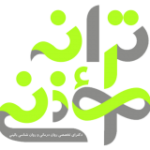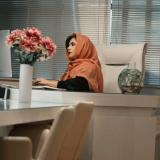Persian Therapist Vancouver
-
دکتر ترانه موذنی

How Persian-Speaking Therapists in Vancouver Enhance Mental Health for Newcomers By Dr. Taraneh Moazzeni, Registered Clinical Counsellor (RCC), Canadian Certified Counsellor (CCC), and Registered Psychologist (British Columbia)
Moving to a new country is more than just changing addresses, it’s a shift in identity, belonging, and the emotional fabric of one’s life. For many Persian-speaking newcomers in Vancouver, this transition brings a host of psychological challenges that are often unseen, unspoken, and untreated. This article explores how working with a Persian-speaking therapist can create a powerful bridge between cultural understanding and mental wellbeing—especially during those critical early years of resettlement.
Persian-Speaking Immigrants in Vancouver
A Community in Transition
With a rapidly growing Iranian community in British Columbia, particularly in Vancouver and the North Shore, the demand for culturally responsive mental health care has increased. Many newcomers initially arrive with resilience and motivation. However, over time they may experience a drop in mental wellness due to barriers such as unfamiliar healthcare systems, language differences, social isolation, and the pressure to adapt. Research shows that Iranian immigrants face unique psychological risks: identity confusion, grief from migration loss, family stress, and trauma related to political displacement. These issues can often remain hidden because culturally appropriate services are either lacking or difficult to access
Language as an Emotional Gateway
Therapy isn’t just about talking, it’s about being understood. And when your therapist speaks your mother tongue, something fundamental shifts. For many Persian-speaking clients, being able to express emotions, metaphors, or memories in Farsi allows for deeper emotional processing and trust. It eliminates the filter of translation and fosters authenticity. This is especially important when clients are dealing with issues rooted in early life, family trauma, or cultural shame. Farsi allows space for subtleties—concepts like “del tang shodan” (deep yearning) or “ba marefat boodan” (emotional integrity)—which often carry no real equivalent in English.
Culture Is Not Just Background—It’s Central
Cultural competence in therapy means more than surface-level understanding of customs or holidays. It requires real insight into how culture shapes mental health, coping, and healing.
A Persian-speaking therapist can understand
• The deep sense of duty toward family, even at the cost of personal well-being.
• The stigma around seeking help, especially for emotional or relational issues.
• Gender roles, generational expectations, and the intersection of tradition and modernity.
A therapist who understands these factors doesn’t need the client to justify them. This shortens the emotional distance between client and counsellor and deepens the therapeutic alliance.
Why This Approach Works: Clinical and Real-Life Impact
Culturally aligned therapy is not only comforting it’s effective. Studies show that clients are more likely to engage in sessions, continue treatment, and benefit from therapy when it’s offered in their own language by someone who understands their cultural context.
In practical terms, Persian-speaking clients in Vancouver who access therapy from culturally informed professionals report:
• Lower dropout rates
• Greater emotional openness
• More effective processing of migration-related stress
• A stronger sense of identity and resilience
How I Approach Therapy
As a clinician with over a decade of experience in both Iran and Canada, I offer therapy that is compassionate, research-informed, and culturally responsive.
I am licensed as:
• A Registered Clinical Counsellor (RCC)
• A Canadian Certified Counsellor (CCC)
• A Registered Psychologist in British Columbia
I integrate evidence-based methods such as Cognitive Behavioural Therapy (CBT), Emotionally Focused Therapy (EFT), narrative therapy, and trauma-informed care all delivered with cultural awareness and in either Farsi or English, depending on your preference.
Choosing the Right Therapist: What You Should Look For
If you are looking for a Persian-speaking therapist in Vancouver, here are a few practical suggestions:
• Check credentials: Look for RCC, CCC, or psychologist licensure in BC.
• Confirm language flexibility: Ask if sessions can be fully or partially in Farsi.
• Discuss therapeutic orientation: Choose someone familiar with both Western modalities and your cultural worldview.
• Notice emotional safety early on: You should feel heard and respected from the first meeting.
• Ask about experience with immigrant issues: Therapists with lived or clinical experience in migration are often more attuned.
Conclusion
For Persian-speaking immigrants in Vancouver, therapy in your own language by someone who understands not just your words, but your world can be transformative. It allows you to process trauma, navigate identity shifts, cope with family dynamics, and build a new sense of belonging.
Choosing a Persian-speaking therapist is not just about comfort.
It’s about making space for healing that is linguistically precise, culturally sensitive, and emotionally safe. Therapy should not be one more place where you feel like an outsider. It should be where you come home to yourself.

